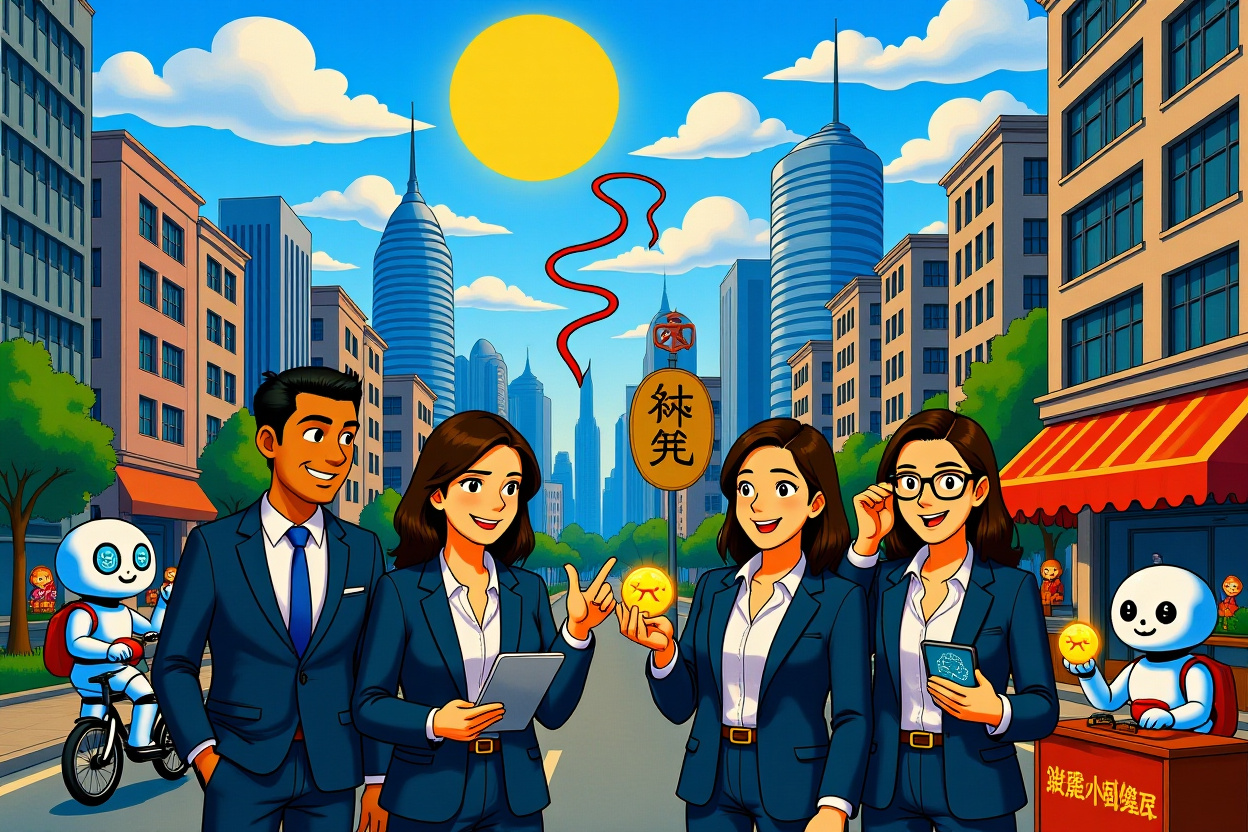The Billion-Dollar Hideaway
China Evergrande’s collapse continues sending shockwaves through global markets as liquidation enters a critical phase. With the property giant scheduled for Hong Kong Stock Exchange delisting on August 25 after 16 years as a listed entity, founder Xu Jiayin (许家印) remains entrenched in a high-stakes standoff. Despite liquidators combing through 3,000 corporate entities for over a year, Xu persistently refuses asset disclosure – a defiance threatening creditor recovery efforts targeting $450 billion in debts. This stonewalling intensifies tensions ahead of September 2’s pivotal Hong Kong High Court hearing where liquidators will demand court-ordered transparency.
The Liquidation Marathon
Since Evergrande’s official liquidation order in January 2023, court-appointed liquidators from Alvarez & Marsal have navigated one of history’s most complex corporate insolvencies. Their forensic investigation now centers on approximately $60 billion in assets distributed through dividends and executive compensation.
The Core Asset Trail
- – Dividend payments: Xu received $7B+ over 10 years through his 60% controlling stake
– Executive compensation: Former CEO Xia Haijun (夏海钧) received $300M+ during peak years
– Offshore transfers: Suspected movement through BVI and Cayman entities
Bloomberg’s August 13 report confirmed liquidators face systematic obstruction despite accessing corporate records across mainland China and Hong Kong. The asset disclosure refusal extends beyond Xu to key associates including ex-wife Ding Yumei (丁玉梅), though legal pressure forced partial transparency from secondary figures.
Xu Jiayin’s Vanishing Act
The once-flamboyant billionaire’s current circumstances remain shrouded in mystery. Since September 2023, when China Evergrande announced Xu was under criminal investigation and “subject to compulsory measures,” reliable information about his whereabouts has vanished. Creditors now pursue leads through his personal network.
Family Fallout
- – Son Xu Tenghe (许腾鹤): Detained since 2023 after overseeing troubled wealth management arm
– Second son: Under scrutiny for possible asset holding roles
– Ex-wife Ding Yumei: Facing separate asset recovery litigation
This information vacuum complicates liquidators’ efforts to trace assets potentially sheltered through family vehicles. With Xu’s flagship Hong Kong mansion already seized, investigators suspect substantial holdings remain concealed in complex trust arrangements.
The $60 Billion Question
At the heart of the standoff lies liquidators’ allegation that $60 billion was systematically extracted from Evergrande during its final years. Asset disclosure holds the key to recovering approximately one-eighth of total debts – potentially $56 billion for desperate creditors.
Legal Chess Moves
Xu’s legal team employs delay tactics previously seen with associates:
- – Challenging jurisdictional authority
– Citing overlapping mainland investigations
– Filing procedural objections
However, Hong Kong courts have demonstrated decreasing patience. When former CEO Xia Haijun (夏海钧) resisted asset disclosure, his $300 million legal defense only postponed inevitable compliance. The September 2 hearing represents liquidators’ strongest push yet for court-mandated asset disclosure directly from Xu.
Delisting Domino Effect
Evergrande’s imminent delisting after 18 months of suspended trading creates new complications. Removal from the Hong Kong Stock Exchange (香港交易所) will:
- – Trigger cross-default clauses in remaining bonds
– Complicate share-based asset recovery
– Eliminate remaining market-value benchmarks
Meanwhile, mainland authorities continue parallel criminal probes into financial misconduct. The asset disclosure battle intersects with Beijing’s broader crackdown on developer debt risks, creating jurisdictional tensions between Hong Kong courts and mainland investigators.
Creditors’ Last Hope
With zero distributions after 19 months of liquidation, offshore bondholders face diminishing recovery prospects. Successful asset disclosure could unlock:
- – Overseas properties: London, Sydney, Vancouver holdings
– Private equity investments
– Luxury assets: Yachts, art collections
“The refusal to disclose assets isn’t just frustrating – it’s economically destructive,” notes restructuring lawyer James Wong. “Each month of delay diminishes recoverable value.”
Global Implications
Evergrande’s collapse has become a case study in cross-border insolvency challenges. The asset disclosure standoff highlights:
Systemic Vulnerabilities
- – Weak corporate governance at Chinese developers
– Dividend policies prioritizing founders over creditors
– Regulatory gaps in inter-jurisdictional cooperation
International investors now scrutinize Hong Kong’s legal effectiveness. A favorable ruling on asset disclosure could restore confidence, while continued obstruction might accelerate capital flight from Chinese risk assets.
The Point of No Return
With the September 2 hearing approaching, Xu Jiayin’s defiance enters its most critical phase. Should Hong Kong’s High Court compel asset disclosure, investigators could finally map the financial maze constructed during Evergrande’s final years. For creditors, transparency represents their last viable path toward recovery after years of empty promises. As the delisting date finalizes Evergrande’s corporate demise, the world watches whether China’s most notorious property collapse will conclude with accountability – or become a blueprint for financial evasion. Stakeholders must prepare for both legal outcomes by consulting restructuring specialists and diversifying China exposure immediately.




